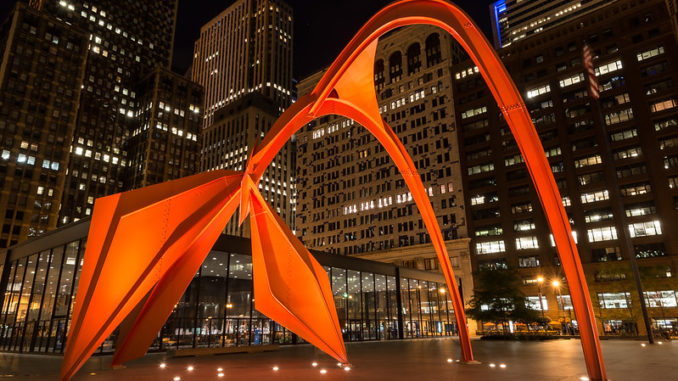
The Chicago Headline Club has long asked the Society of Professional Journalists (SPJ) to reject money from questionable sources—not along political lines, but because, as a professional organization, SPJ should not be taking money from sources that have attacked journalism and journalists.
This is a central issue, tied to our identity and sense of ourselves as journalists. It baffles us why this is even open to debate.
We firmly believe the SPJ should adopt the policy that: “Any group that provides SPJ with financial assistance should demonstrate a commitment to SPJ’s Code of Ethics. Guidelines should specify what would preclude sponsorship—for example: clear affiliation with a political party, a history of uncivil discourse or a pattern of deliberately spreading misinformation.”
Money from the Koch family has caused the most controversy, which is well-deserved. From 2010-2017, the family operated Kochfacts.com, which attempted to intimidate journalists and push “alternative facts.” They also took out Facebook and Google ads to harass and discredit journalists.
The argument is simple: We should not take money from sources that are at odds with our core principles and openly attack our membership.
If we were any other professional organization, we wouldn’t stand for it. We would protect our professional mission and our members. If we were an association of firefighters, we wouldn’t take sponsorship money from arsonists.
Make no mistake, the Koch family is buying access, a platform and legitimacy after undermining journalism. They’ve funded groups that spread propaganda and misinformation (see KochFacts.com, Project 6, etc.).
It also makes us look dumb, like we have no professional judgment.
Here are some arguments we’ve heard to keep allowing Koch to purchase sponsorships:
1.) Hey, it’s a nonprofit. It’s not a political entity.
This position is willfully naive. It’s the same name, the same money—and transparently so.
Using ProPublica’s Nonprofit Explorer and the Charles Koch Institute’s own tax returns, we can see that 99% of the money comes from Charles Koch himself and directly from Koch family trusts under different names, all run out of the same address in Arlington, Virginia.
1320 NORTH COURTHOUSE ROAD, SUITE 500
ARLINGTON, VA 22201
And this argument also doesn’t address the core issue—that the Koch family is using its resources to gain access, legitimacy and programing power inside journalism institutions. Citizens United and Planned Parenthood are also nonprofits, but the SPJ would have a hard time accepting sponsorship money from them.
It also defies the journalistic dictum to “follow the money.” It just make us look dumb. Same name, same money.
2.) Other entities, like the Poynter Institute, have accepted money from the Koch family.
Just because other organizations have exercised bad judgment does not mean SPJ should do so as well and violate its own core values. Even Poynter wrote “we recognized that Koch Industries has not been friendly to journalists.”
3.) The SPJ Code of Ethics applies to working journalists in the field, not to its organizing body and how that body does business.
Saying “our own code of ethics don’t apply to us” is a sure way to further erode trust in the SPJ brand. Ethics, to use a dictionary definition, are the “moral principles that govern a person’s behavior or the conducting of an activity” and morals are “concerned with the principles of right and wrong behavior.”
SPJ’s Code of Ethics directs journalists to Seek the Truth and Report It, Minimize Harm, Act Independently, and Be Accountable and Transparent. By allowing Koch and other sponsors to buy access and choose their own panelists—in opposition to SPJ’s 2003 convention policy—the organization breached its own guidelines and own ethical code to act independently and to be accountable and transparent.
The Code of Ethics was thoughtfully-crafted and fiercely debated during its long inception. We should respect and protect it.
4.) In the free marketplace of ideas, the Charles Koch Institute and Charles Koch Foundation can purchase as much speech as they want. This is a First Amendment issue.
This defense is misguided at best, intellectually dishonest at worst. The First Amendment protects us from persecution from our government on free speech grounds.
It is not a free speech issue to exclude entities that have been documented to work daily—and with great funds—to destroy public faith in independent journalism and to attack journalists doing their jobs.
SPJ can defend the First Amendment and reject money from groups that attack its members and disseminate propaganda. By not doing so, SPJ damages its brand and erodes the public trust in journalism that is ethical and impartial.
SPJ should be an organization devoted to defending and protecting independent journalism. We have to draw a line somewhere. SPJ isn’t a government entity that must remain neutral in every instance. SPJ needs to make judgment calls within the context of protecting journalists in American society and then explain those decisions to their members and the public.
5.) It doesn’t matter where the money is coming from if we do good work with it.
That is a purchased opinion. SPJ should not be in the business of rehabilitating brands and names with flagrant ethical concerns. Would we be saying positive things about such entities if they had not given money?
6.) Sponsorships like these pay the salaries of people back at headquarters.
This directly contradicts SPJ’s position as an independent entity. If we take money from questionable sources that directly contradict our values, then we are corrupting our public image and core principles.

